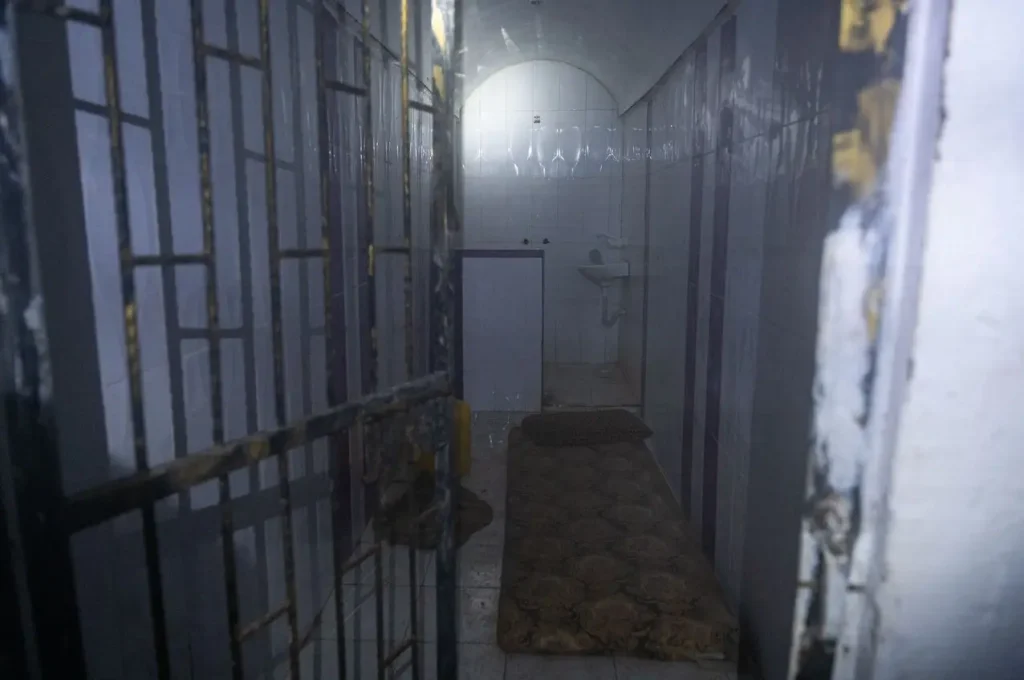The Israeli Ministry of Health’s report to the United Nations paints a harrowing portrait of the suffering endured by hostages taken by Hamas during the October 7, 2023, massacre. The testimonies collected reveal a systematic campaign of brutality, encompassing physical torture, sexual violence, and psychological torment. Children, bound and beaten throughout their captivity, bear the physical scars of their ordeal. Adults recount horrific acts of violence, including burning with heated objects, sexual assault at gunpoint, forced undressing, and branding with hot metal. The report details the devastating physical toll, with significant weight loss, infections, and gastrointestinal illnesses prevalent among the former hostages. The psychological impact is equally profound, marked by trauma, nightmares, guilt, and difficulty reintegrating into normal life. The report serves as a stark reminder of the ongoing plight of the 99 hostages who remain in captivity, enduring these unimaginable conditions.
The report’s release has amplified the anguish of families whose loved ones are still held captive. Michael Levy, whose brother Or remains a hostage, shared his despair and frustration with the international community’s perceived inaction. He criticized the United Nations for what he sees as a disregard for the suffering of Israeli hostages, highlighting the inhumane conditions they endure in Hamas’s captivity. Levy’s brother, Or, is reportedly not considered a “humanitarian case” for release due to his age, despite being a father whose wife was murdered during the attack. This underscores the arbitrary and cruel nature of Hamas’s hostage-taking practices. Levy expressed hope that the incoming Trump administration would adopt a more aggressive stance, applying greater pressure on Hamas and its financiers to secure the release of all hostages.
The report details the horrifying experiences of the freed hostages, providing chilling accounts of the abuse they suffered. Women describe being subjected to sexual violence, including assaults at gunpoint and forced undressing. Men recount enduring sexual abuse, prolonged starvation, severe beatings, and torture involving branding with hot metal. Children, some as young as toddlers, were not spared from the brutality, with reports of them being bound, beaten, and witnessing acts of violence. The report meticulously documents the physical and psychological consequences of this abuse, painting a grim picture of the hostages’ ordeal. The combination of physical torture, sexual violence, and psychological torment inflicted upon the hostages reveals the depths of Hamas’s depravity.
Beyond the physical injuries and the psychological trauma, the report highlights the long-term health consequences faced by the former hostages. Significant weight loss, infections, gastrointestinal illnesses, and other severe health complications are common. The unsanitary conditions in captivity exacerbate these health issues, contributing to the overall deterioration of the hostages’ physical well-being. The psychological scars are equally deep, with survivors reporting intense trauma, dissociative episodes, severe nightmares, and an overwhelming sense of guilt. The report underscores the need for comprehensive and long-term rehabilitation programs to address the complex physical and psychological needs of the returnees.
The report’s release has sparked mixed reactions. While it validates the survivors’ suffering and provides crucial documentation of Hamas’s atrocities, it also reopens emotional wounds for families and returnees. The detailed accounts of torture and abuse serve as a painful reminder of the ongoing plight of those still held captive. Dr. Hagai Levine, head of the Health Team for Hostages and Missing Families Forum, emphasized the complexity of treating released hostages, highlighting the profound psychological challenges they face. He stressed the need for a multidisciplinary, long-term approach to rehabilitation, acknowledging the long road to recovery that lies ahead for these individuals.
The Israeli government has strongly condemned Hamas’s actions and called for international intervention. Health Minister Uriel Busso’s statement to the UN urged the international community to apply increased pressure on Hamas and its supporters to secure the release of all hostages. He characterized this as a moral and humanitarian imperative. Israel’s ambassador to the United Nations criticized the world body for its handling of the hostage issue, accusing it of attempting to forget the atrocities committed. The report serves as a powerful indictment of Hamas’s brutality and a desperate plea for the world to act decisively to bring an end to the hostages’ suffering. The testimonies contained within its pages offer a chilling glimpse into the horrors endured by those still held captive, underscoring the urgency of securing their immediate and unconditional release.













